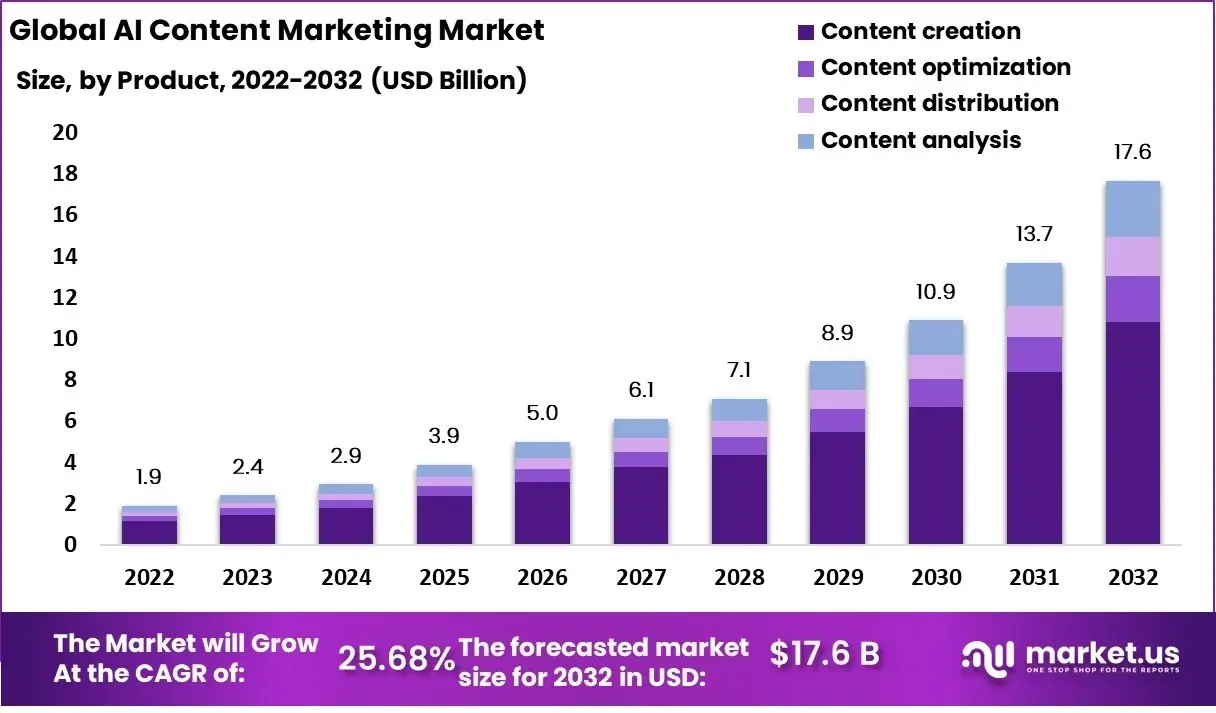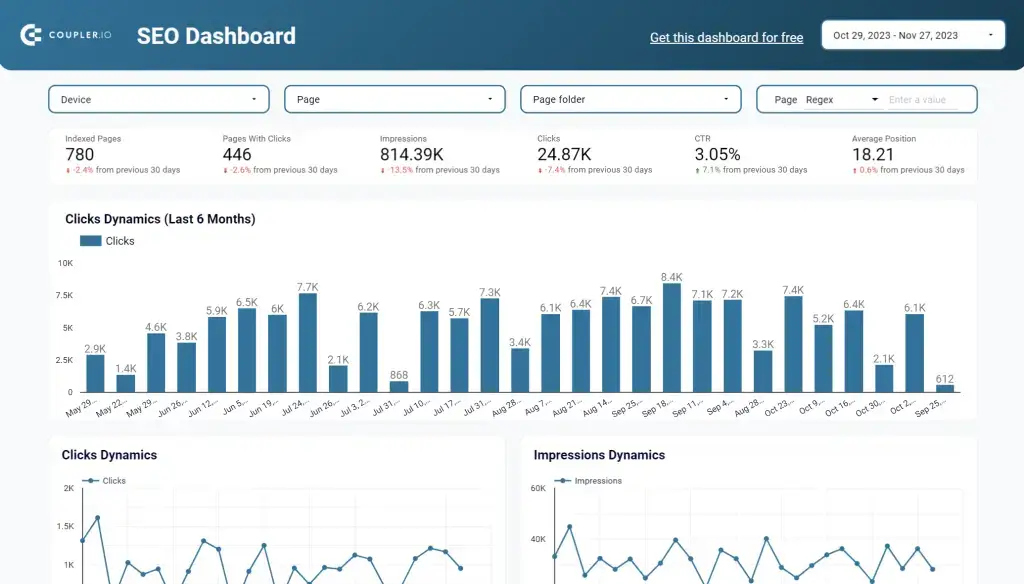In the fast-paced online business world, achieving optimal visibility is synonymous with success. One of the critical tools in the digital marketing arsenal is Search Engine Optimization (SEO).
As technology evolves, Artificial Intelligence (AI) has emerged as a powerful force transforming the landscape of SEO.
76% of US businesses already use or will implement AI tools this year. That’s 3 out of 4. Don’t be the one that is left out and left behind.
Shortcuts:
- Backlink Building Gets a Boost from AI
- Coupons and AI: A Strategic Synergy
- AI-Driven Content Creation and Optimization
- Predictive Analytics for SEO Strategy

First, let’s explore how AI supercharges SEO, shedding light on widespread benefits and strategies for achieving optimal online visibility.
Then, we'll delve deeper into the transformative impact of AI on crucial SEO elements such as keyword research, backlinks, and the strategic utilization of coupons.
AI Revolutionizes Keyword Research
-
Understanding the Role of Keywords
Keywords serve as the linchpin of SEO, acting as the conduit that connects users' search queries with relevant content.
Traditional keyword research methods involve identifying terms and phrases relevant to a business or website, often relying on historical data and educated guesses.
However, AI has revolutionized this process by introducing advanced algorithms and machine learning capabilities, ushering in a new era of dynamic and predictive keyword analysis.
-
Dynamic and Predictive Keyword Analysis
AI-powered tools can analyze vast amounts of data to identify patterns, trends, and user behaviors.
This dynamic approach to keyword analysis goes beyond static lists, enabling businesses to adapt their content strategy in real-time.
AI algorithms can predict emerging trends and identify long-tail keywords that you might overlook using traditional methods.
It ensures that businesses stay ahead of the curve, optimizing their content for the most relevant and impactful keywords, thereby maximizing their online visibility.
-
Natural Language Processing (NLP) Enhances Relevance
The advent of Natural Language Processing (NLP) marks a significant leap forward in keyword optimization.
AI, equipped with NLP capabilities, can now understand the context and nuances of user queries.
This capability allows businesses to create content that aligns more closely with the way people naturally speak and search.
As search engines increasingly prioritize contextually relevant content, leveraging NLP through AI provides a competitive edge in the quest for optimal online visibility.
-
Sentiment Analysis for Keyword Strategy
AI doesn't stop at understanding the words users type; it extends to comprehending the sentiment behind those words.
Sentiment analysis, a subset of NLP, allows businesses to gauge the emotions and attitudes expressed in user queries.
By incorporating sentiment analysis into keyword strategy, companies can tailor their content to match user sentiments, fostering a deeper connection and resonating more effectively with their target audience.
Backlink Building Gets a Boost from AI

-
The Significance of Backlinks
Backlinks, or inbound links, are vital in establishing a website's authority and credibility in the eyes of search engines.
Traditional approaches to backlink building involve manual outreach and link acquisition, which can be time-consuming and challenging.
AI introduces innovative solutions to streamline and enhance the backlink-building process.
-
Intelligent Link Building Strategies
AI algorithms excel at analyzing vast datasets to identify high-authority websites within specific industries or niches.
Understanding the contextual relevance of content, AI-driven tools can suggest potential link-building opportunities, making the process more strategic and efficient.
It ensures that businesses secure backlinks from reputable sources, positively impacting their search engine rankings.
-
Predictive Analysis for Link Quality
AI goes beyond identifying potential backlink sources; it can predict the quality and impact of these links.
Through predictive analysis, businesses can focus on acquiring backlinks that will likely have the most significant positive effect on their SEO.
This data-driven approach empowers businesses to make informed decisions, optimizing their backlink profile for optimal online visibility.
-
Automated Backlink Monitoring
Monitoring the health and performance of backlinks is a crucial aspect of SEO. AI-powered tools offer automated backlink monitoring, keeping a vigilant eye on the quality and relevance of acquired links.
If a backlink loses value or becomes detrimental, AI can provide real-time insights, allowing businesses to take prompt corrective actions and maintain a robust backlink profile.
Coupons and AI: A Strategic Synergy
-
The Role of Coupons in SEO
While coupons are not traditionally considered a part of SEO, their strategic integration can be a powerful tool for driving online visibility.
Consumers actively search for discounts and promotions, and AI can enhance the effectiveness of coupons within the SEO landscape.
-
AI-Powered Personalization
AI lets businesses personalize coupon offerings based on user behavior, preferences, and demographics.
By analyzing consumer interactions and transaction data, AI algorithms can recommend personalized discounts, increasing the likelihood of conversions.
This personalized approach not only enhances the user experience but also contributes to improved search engine rankings.
-
Dynamic Coupon Optimization
Traditional coupon strategies often involve static offerings, with businesses manually updating promotions based on predefined schedules.
AI transforms this approach by dynamically optimizing coupon offerings in real-time.
By analyzing market trends, competitor activities, and user behaviors, AI ensures that coupon code strategies remain adaptive and relevant, maximizing their impact on online visibility.
-
Incorporating Coupons into Content Strategy
AI can assist in seamlessly integrating coupon strategies into broader content strategies. AI can identify opportune moments to feature coupons within relevant content by analyzing user behavior and search trends.
It ensures that coupons are strategically placed to capture the attention of users actively seeking discounts, contributing to user engagement and improved SEO.
AI-Driven Content Creation and Optimization

Source: Marketing.US via LinkedIn
-
Content Creation with Natural Language Generation (NLG)
AI is increasingly being utilized for content creation through Natural Language Generation (NLG), and according to recent research, it is only the beginning.
NLG algorithms can analyze data and generate human-like content, making it an invaluable tool for producing high-quality, relevant, and SEO-friendly content.
AI-generated content can cover many topics, helping businesses maintain a consistent and robust online presence.
-
Content Optimization for User Intent
Understanding user intent is crucial for effective SEO, and AI brings a new dimension to content optimization. AI algorithms can analyze user queries and behavior to decipher intent accurately.
This insight allows businesses to optimize their content to align with specific user intents, improving the relevance and usefulness of the information provided.
As search engines prioritize content that fulfills user intent, this approach enhances a website's chances of ranking higher in search results.
Predictive Analytics for SEO Strategy

Source: Coupler.io
-
Forecasting Trends with Predictive Analytics
AI-driven predictive analytics empower businesses to anticipate future trends and developments in the SEO landscape.
By analyzing historical data and identifying patterns, AI algorithms can provide insights into upcoming shifts in search engine algorithms, user behaviors, and market trends.
Armed with this foresight, businesses can proactively adjust their SEO strategies, staying ahead of the curve and maintaining optimal online visibility.
-
Proactive Risk Management
Predictive analytics not only forecast positive trends but also identify potential risks.
AI can analyze various factors, including algorithm updates, competitor activities, and market shifts, to predict potential website visibility challenges.
Proactively managing these risks allows businesses to mitigate the impact of adverse events and maintain a resilient SEO strategy.
Conclusion
In the dynamic realm of online business, the symbiotic relationship between AI and SEO is reshaping how businesses approach digital marketing.
This comprehensive exploration has unveiled the myriad ways AI supercharges SEO, from revolutionizing keyword research and enhancing backlink building to strategically synergizing with coupons for optimal online visibility.
As technology advances, businesses must adapt to these transformative shifts in SEO practices.
The integration of AI is not just a trend but a necessity for those seeking to stay competitive and visible in the digital marketplace.
Embracing AI-driven strategies ensures that businesses not only confidently navigate the ever-changing SEO landscape but also thrive in an era where online visibility is paramount to success.



